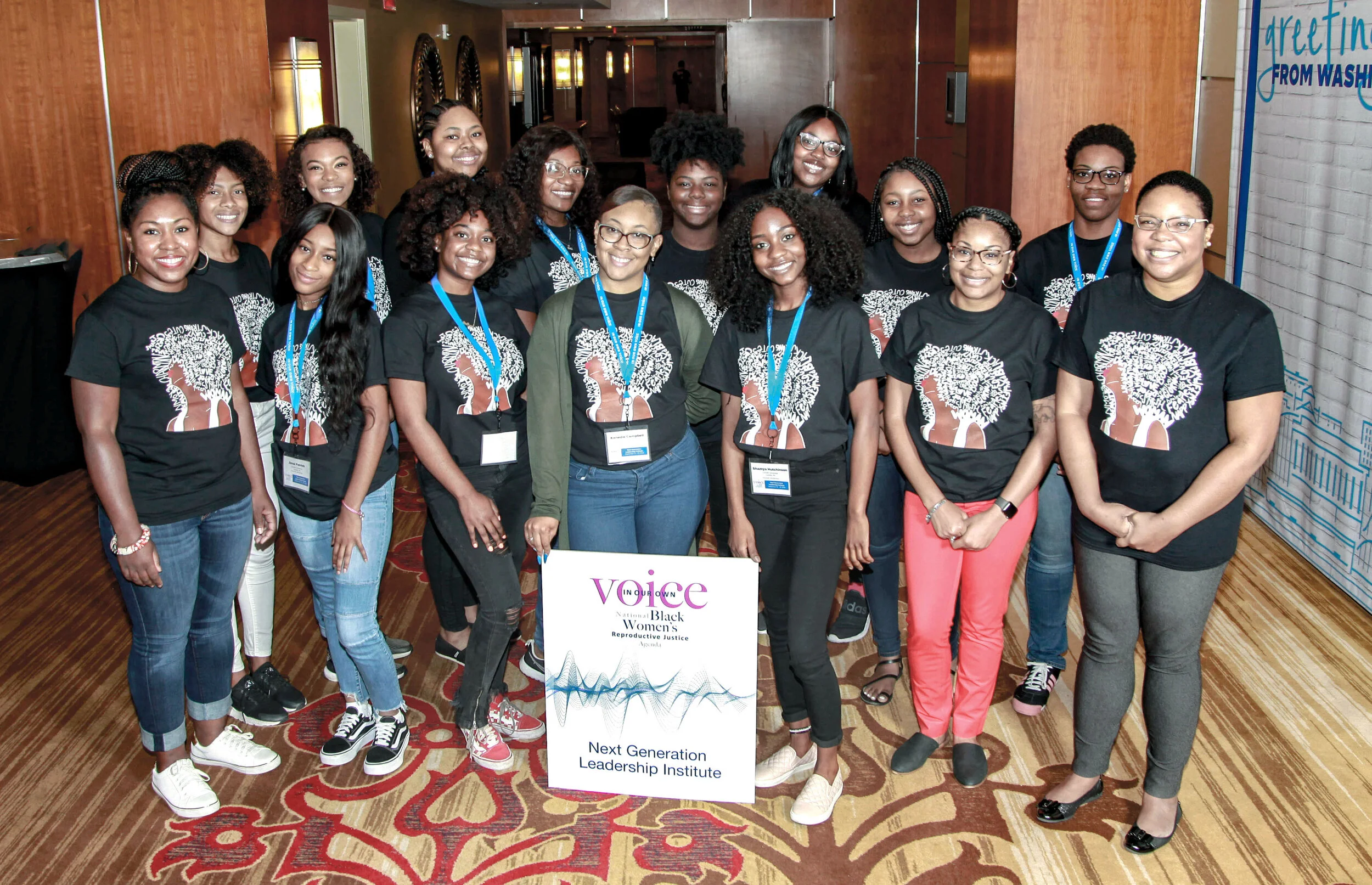Reproductive Justice Program
A group of young people are pictured attending In Our Own Voice: National Black Women’s Reproductive Justice Agenda’s Next Generation Leadership Institute
The Scherman Foundation has long supported reproductive health and rights work, but as these rights are rolled back at the federal level and challenged in each state, there is a key opportunity to invest in building a stronger, more inclusive movement grounded in the principles of Reproductive Justice (RJ) and aimed at achieving more expansive protections. At its core, RJ is the belief in the human right to bodily autonomy, including deciding to have children or not have children and to raise children in safe and sustainable communities. At its most ambitious, RJ strives for all people to have the complete economic, social, and political power and resources to make healthy decisions about our bodies, our families, and our communities in all areas of our lives. Because this framework takes an intersectional approach, incorporates racial justice, and centers those most marginalized, RJ is a movement led by women, LGBTQ+ individuals, and young people of color.
Priorities for 2025 and 2026
The Foundation will prioritize support to state-based and national organizations that use the RJ framework to
Dismantle local, state, and federal policies that harm those most marginalized because of race, age, class, or gender identity and advocate for the adoption of proactive and protective RJ policies
Create access points and a leadership pathway in the RJ movement, particularly for young people, BIPOC communities, and/or medical professionals
Use cultural and narrative strategies to advance their work
Organize and mobilize broad support for RJ policies at the state and/or federal levels
Build political power by engaging voters using an RJ framework
In addition, a limited number of grants will support national organizations that provide critical and effective capacity-building for the RJ movement, particularly those providing support in terms of
More diversified funding and long-term fiscal strength
Cultural and narrative shift
Voter engagement
The goal of our RJ grantmaking is to support a strong, dynamic, and durable movement for RJ in multiple states and at the national level. To that end, we are focused on supporting our current grantees for the next few years, with a limited number of new grants by invitation.
PROGRAM STAFF
Gisela Alvarez

